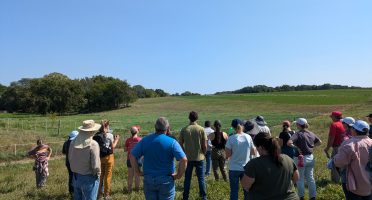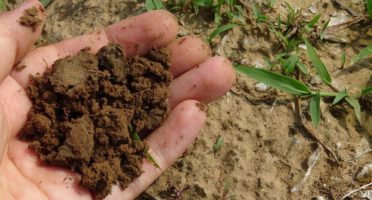The North Central Region Soil Health Nexus is a multistate Extension-led team dedicated to increasing access to research-based soil health knowledge, extension and resources.
The team was created in 2015 and is structured around research, extension and outreach, and resources and communications with representatives from across the North Central Region. Join our mailing list to stay up to date on regional soil health trainings, webinars, and new soil health resources.
Digital Café Series

How do Soil Health and Regenerative Agriculture Align?
Wednesday, February 18th at 2pm CT
Join us for the February edition of the Soil Health Nexus Digital Café, where we discuss regenerative agriculture and soil health. What resources are needed to help farmers transition to regenerative agriculture? What resources are needed to support farmers soil health? Do these align? How does organic agriculture fit in? Join us for an engaging conversation with fellow soil health and agriculture educators from across the region.
Upcoming Events

Each year the Soil Health Nexus partners to host a multistate workshop for ag educators.
In 2025 the Soil Health Nexus joined Iowa State Outreach and Extension and educators from across the region for the Soil Health and Livestock: Above and Below Ground Benefits of Livestock on the Land Workshop on October 22nd and 23rd in Ames, Iowa.
Featured Resource

We have recently updated our Soil Health Nexus Toolbox! Users can now search by category and keywords allowing you to easily find the resoruces you need. Got questions about compaction or salinity? We’ve got you covered.
All resources have been reviewed by Extension specialists and faculty for accuracy and relevance. Check it out today!